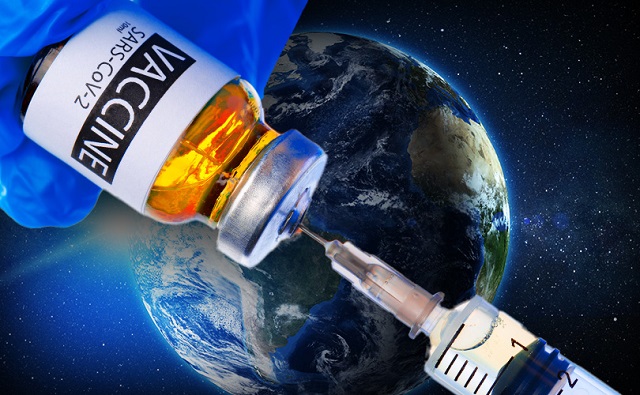Alberta
A Matter of Fact: Environment Minister Steven Guilbeault’s future view of Canada’s oil and gas sector is unrealistic

Canadian Minister of the Environment and Climate Change, Steven Guilbeault, speaks at the China pavilion during the United Nations Conference of the Parties (COP15) in Montreal, Quebec, on December 14, 2022. Getty Images photo
From the Canadian Energy Centre Ltd.
Canada could play a key role in lowering global emissions by unlocking our LNG industry and helping Asian countries replace coal
Federal Environment and Climate Change Minister Steven Guilbeault is continuing to plot a painful course toward a short-sighted phase out of Canada’s world class oil and gas sector based on an unrealistic view of world’s future energy mix.
In an interview with Euractiv, Guilbeault said he supports the phase out of unabated fossil fuels, those without the technology to minimize emissions, by 2050 to align with the International Energy Agency’s Net Zero Scenario, a path that is largely out of touch with the current global reality.
Based on that increasingly unlikely scenario, the minister said he anticipates Canada’s oil and gas sector will follow suit with a 50% to 75% reduction in the production of oil and gas by 2050, which would be devastating for our economy, hurt our economic allies, and make little to no progress towards reducing global emissions.
Here are the facts.
Fact: The IEA’s Net Zero Scenario is largely aspirational, not practical
Guilbeault’s vision of a massive global reduction of fossil fuel usage is growing even less likely amid a lingering energy crisis prompted by several years of declining investment in oil and gas followed by Russia’s invasion of Ukraine.
The fact is, this year the world will use more oil and more coal than any time in human history.
According to the IEA’s latest short-term outlook, global oil use will hit a record high of 102 million barrels per day this year and is expected to grow to 106 million barrels per day by 2028. Last week, OPEC forecasted that by 2045, global oil demand will reach 110 million barrels per day.
Meanwhile, demand for natural gas, particularly liquefied natural gas (LNG) is soaring.
By 2040, global LNG demand – driven primarily by growing Asian economies – is expected to reach 700 million tonnes, a more than 75 per cent increase from 2022. Demand for LNG is expected to outpace supply by the middle of this decade.
Relying on the IEA’s Net Zero scenario, Guilbeault said he believes oil use will decline to between 25-30 million barrels per day, a 75 per cent reduction. Rapid deployment of renewables, he said, would fill that void despite some significant hurdles that could hinder a sweeping transition.
The bottom line is pretty clear. In the IEA’s most likely scenario, oil and gas will still account for 47 per cent of the global energy mix in 2050, a reduction of 5 per cent from 2021. While the share of renewables will more than double, it is still expected only to account for 29 per cent of the world’s energy mix in 2050.
Fact: A rapid phase out of oil and gas would hurt Canada and its allies
Canada’s oil and gas sector is a critical part of our economy, supporting hundreds of thousands of jobs from coast-to-coast, including thousands of jobsin manufacturing, environmental, and financial services tied to the industry, especially in Ontario and Quebec.
A recent analysis by commodity data firm S&P Global focused specifically on the oil sands suggests that efforts to meet federal emissions targets for 2030 would likely force the industry to slash production by up to 1.3 million barrels per day.
According to the analysis, that could result in the elimination of between 5,400 and 9,500 jobs. With just over 54,000 oil and gas extraction jobs in Canada, that would mean the elimination of as much as 17% of the workforce.
In addition to jobs, the industry is also an economic bulwark, generating $168 billion in GDP in 2021, about 7.2 per cent of Canada’s economic activity. Oil and gas also accounted for nearly a third of Canada’s exports in 2021, injecting $140 billon into the economy.
Amid the ongoing global energy crisis, some of Canada’s international allies have turned to Canada to be a potential key supplier as they look for stable and responsible suppliers to replace Russian oil and gas.
The leaders of Germany and Japan made direct appeals to Canada to supply more LNG to help meet their energy needs.
Yamanouchi Kanji, Japan’s ambassador to Canada, made it clear that some of our Asian allies see Canada as a key player in the world’s future energy, particularly when it comes to LNG.
“The world is waiting for Canada,” he said earlier this year. “Canada can and should play a very important role to support the energy situation not only in Japan and South Korea, but the world.”
Fact: Reducing global emissions starts with Canadian natural gas
If Canada is truly serious about tackling global greenhouse gas emissions, we could make a much bigger impact by supplying energy-hungry Asian countries with some of the cleanest LNG on the planet to replace coal.
Climate change is a global issue, not a local one.
Despite being one of the world’s largest energy producers, Canada is still only responsible for about 1.6 per cent of total global emissions.
Developing Asian counties, particularly China, have turned to coal to help power their growing economies. A switch to natural gas to generate power reduces emissions by 50 per cent on average, according to the IEA. Canadian natural gas shipped as LNG could perform even better, reducing emissions from coal by about 65 per cent, according to Energy for a Secure Future.
With analysts expecting world LNG demand to double over the next two decades, Canada could make a real measurable impact on lowering global emissions by unlocking its LNG potential.
A recent study by Wood Mackenzie found that Canadian LNG exports could reduce net emissions in Asia by 188 million tonnes per year through 2050. Put another way, that would be the annual equivalent of removing the emissions of all vehicles on Canadian roads, or wiping out nearly three time’s B.C.’s total emissions.
Meanwhile, a coalition of six companies representing 95 per cent of Canada’s oil sand production have jointly committed to achieve net zero emissions by 2050. The Pathways Alliance is looking to harness emerging technology like carbon capture and storage as well as small modular nuclear reactors to reach that target.
The reality is that if Canada significantly curtails its oil and gas industry, other national producers, some of which lack Canada’s commitment to democratic ideals and the environment, will fill that void. This could see bad actors like Russia continue to maintain a strategic and economic advantage over Europe by maintaining European reliance on its energy.
Fact: Phasing out oil and gas would hurt Indigenous communities
Over the last decade, Indigenous communities have emerged as key players in Canada’s energy sector, allowing First Nations in many cases to create intergenerational opportunity for their people.
From pipelines to LNG terminals, dozens of Indigenous communities have entered into ownership agreements on major oil and gas projects.
In B.C., 16 First Nations will acquire a 10 per cent stake in the Coastal GasLink pipeline once it’s completed later this year. In Alberta, another 23 First Nation and and Métis communities are now approximately 12 per cent owners of seven operating Enbridge oil sands pipelines, the largest Indigenous energy transaction ever in North America.
And in northwest B.C., the Haisla Nation is 50 per cent owner of the proposed Cedar LNG project, which would be the first Indigenous-owned LNG terminal in the world.
“When Europeans, Asians and Americans think of Canada’s Indigenous peoples, they often think we oppose all energy development. We aren’t victims of development. Increasingly we are partners and even owners in major projects,” Haisla Nation Chief Councillor Crystal Smith said during an April press conference after leading a delegation of Indigenous leaders to meet key international diplomats.
Indigenous employment in Canada’s oil and gas sector has continued to grow, rising by more than 20 per cent since 2014 to reach an estimated 10,400 jobs in 2020.
Indigenous-owned businesses also benefit from the industry, with three major projects – the Trans Mountain Expansion, Coastal GasLink, and LNG Canada – spending some $9 billion with Indigenous- and locally-owned businesses.
Alberta
Province announces next step to revamped health care system

Setting the foundation for a refocused health system
Proposed legislation would support the refocusing of Alberta’s health care system to ensure Albertans get the care they need when and where they need it.
On Nov. 8, 2023, Alberta’s government announced plans for a refocused health care system to ensure patients are receiving the care they need, when and where they need it. To achieve this, Alberta’s government will be creating four new organizations, one for each priority health services sector: acute care, primary care, continuing care and mental health and addiction.
If passed, the Health Statutes Amendment Act would enable the government to take the necessary next steps to refocus the province’s health care system. The legislation would ensure Albertans have a system that works for them by prioritizing their need to find a primary care provider, receive urgent care without long waits, have access to the best continuing care options and obtain excellent mental health and addiction treatment.
“We are taking another step toward improving health care by updating legislation and enabling the governance and oversight required to refocus the health system. The critical improvements to transparency and accountability will help support the successful refocusing of the health care system to one that is responsive, effective and reflects the needs and priorities of Albertans today and for future generations.”
The Health Statutes Amendment Act will enable the transition from one regional health authority, Alberta Health Services, to an integrated system of four sector-based provincial health agencies including primary care, acute care, continuing care and mental health and addiction. The agencies will be responsible for delivering integrated health services, ensuring Albertans receive timely access to care, regardless of where they live.
The Health Statutes Amendment Act establishes roles for an oversight minister and sector minister. The Minister of Health will take on the role of oversight minister, responsible for setting the strategic direction of the overall health system. A sector minister will be responsible for a specific health services sector. For example, the sector minister for Recovery Alberta is the Minister of Mental Health and Addiction. On the recommendation of the oversight minister, additional health service sectors may be established and designate a minister responsible for that newly created sector.
Enhanced government oversight will help Alberta’s government to better direct resources to the front lines where they are needed the most, improve patient care overall and support health care professionals.
“Mental health and addiction have been growing issues within our society and need to be prioritized within our health care system. Amid an addiction crisis, a refocused health system will allow for mental health and addiction services to get the attention, oversight and focus they need. Recovery Alberta would allow for improved mental health and addiction care across the province as an important part of an integrated health system.”
“Refocusing Alberta’s healthcare system is a crucial step towards ensuring that we can deliver a framework that prioritizes accessibility, accountability, and patient-centered care. By streamlining operations, improving oversight and fostering collaboration, we are setting a strong foundation for a healthcare system that is better equipped to address the diverse needs of each of our communities.”
The legislation will enable the minister of health to transfer employees or classes of employees from AHS to the new sector-based organizations, once established. During the transition period, AHS will be enabled to continue operating as a regional health authority. Employee transfers will be seamless, maintaining existing bargaining relationships and collective agreements. This will ensure stability for the workforce, unions and government as the health system refocus is implemented. There will be no job losses for staff who transition into the new organizations.
Amendments to be made to existing legislation
The Health Statutes Amendment Act includes amendments to the Regional Health Authorities Act and the Health Information Act, which have not been updated since the 1990s.
As part of these amendments, the name of the Regional Health Authorities Act will change to the Provincial Health Agencies Act. The amended Provincial Health Agencies Act will remove outdated references to allow the transition from a single regional health authority to a unified, sector-specific provincial health system. This will clarify the scope and accountabilities of provincial health agencies and health service providers going forward.
The amendments will also place responsibility on the provincial health agencies for operational planning and oversight of clinical service delivery across the province. This will enable provincial health agencies to set priorities in the provision of health service delivery. The agencies will also be tasked with sharing information and collaborating closely to support seamless patient care as the transition to the refocused health care system takes place.
Alberta’s government is committed to ensuring that patient information continues to remain safe and secure through this transition. Amendments to the Health Information Act will be introduced to support the new health system refocus and to support the establishment of the Canadian Centre of Recovery Excellence. These amendments will allow the Ministry of Health, the Ministry of Mental Health and Addiction, the four new provincial health agencies, the Health Quality Council of Alberta and Canadian Centre of Recovery Excellence to have the authority to use health information for health system purposes.
If passed, the Health Statutes Amendment Act will enable Recovery Alberta, the mental health and addiction provincial health agency, to begin operating in the summer of 2024. The primary care, acute care and continuing care provincial health agencies are expected to be established in the fall.
Quick facts
- Consequential amendments are changes made to existing legislation due to new legislation being passed. These amendments are necessary to ensure legislative alignment with the proposed amendments to the Regional Health Authorities Act.
- To support the Regional Health Authorities Act amendments and ensure alignment, 43 other acts are being consequentially amended – for example, to replace references to “regional health authority” with “provincial health agency” where necessary.
- AHS will remain a key provider of health services, and in fall 2024 will transition to focusing on the provision of acute care services.
- Alberta’s government introduced the Canadian Centre of Recovery Excellence Act which, if passed, will establish the Canadian Centre of Recovery Excellence (CoRE) as a public agency that would support the Government of Alberta, including Mental Health and Addiction, and Recovery Alberta in advancing the Alberta Recovery Model.
Related information
- Establishing the future of Alberta health care
- Refocusing health care in Alberta
- Recovery Alberta
- Canadian Centre of Recovery Excellence
- Bill 22: Health Statutes Amendment Act, 2024
Related news
- Refocusing on patient-centred care (Nov. 8, 2023)
Alberta
Red Deer Hospital Lottery – Second Chance Early Bird Prize!!!

|
|
|
|
|
-

 Brownstone Institute2 days ago
Brownstone Institute2 days agoMedical Elites’ Disgrace Over Ivermectin
-

 conflict2 days ago
conflict2 days ago‘It Makes No Sense’: Experts Puzzled By Biden Admin’s Claim That Rafah Invasion Wouldn’t Help Israel Defeat Hamas
-
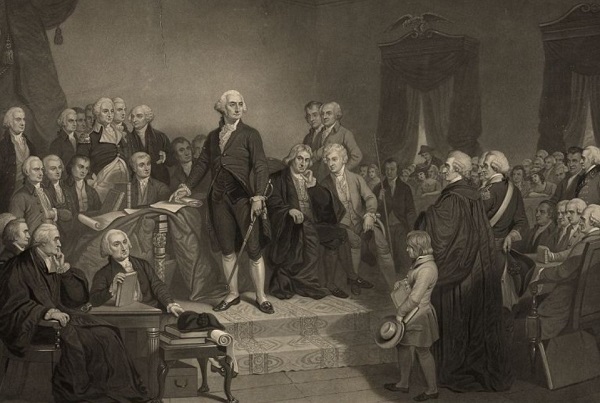
 Opinion2 days ago
Opinion2 days agoThe American Experiment Has Gone Down In Flames
-

 COVID-192 days ago
COVID-192 days agoThe New York Times Admits Injuries from COVID-19 Shots
-

 Bruce Dowbiggin1 day ago
Bruce Dowbiggin1 day agoWhy Do The Same Few Always Get The Best Sports Scoops?
-
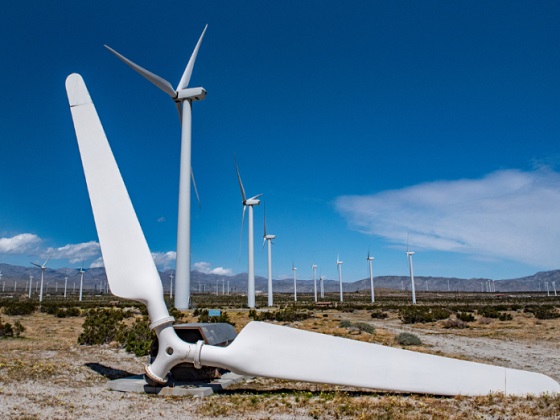
 Energy1 day ago
Energy1 day agoBuckle Up for Summer Blackouts: Wind Is Already Failing Texas in Spring
-
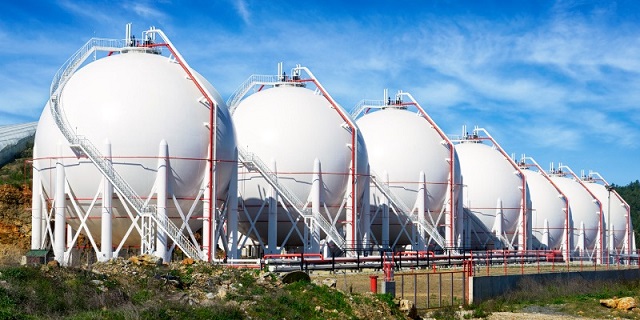
 Energy1 day ago
Energy1 day agoFederal government continues to reject golden opportunities to export LNG
-
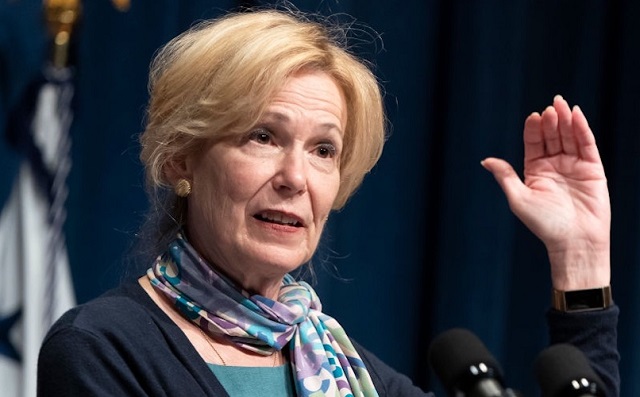
 COVID-191 day ago
COVID-191 day agoFormer COVID coordinator Deborah Birx now admits jabs could have injured ‘thousands’




